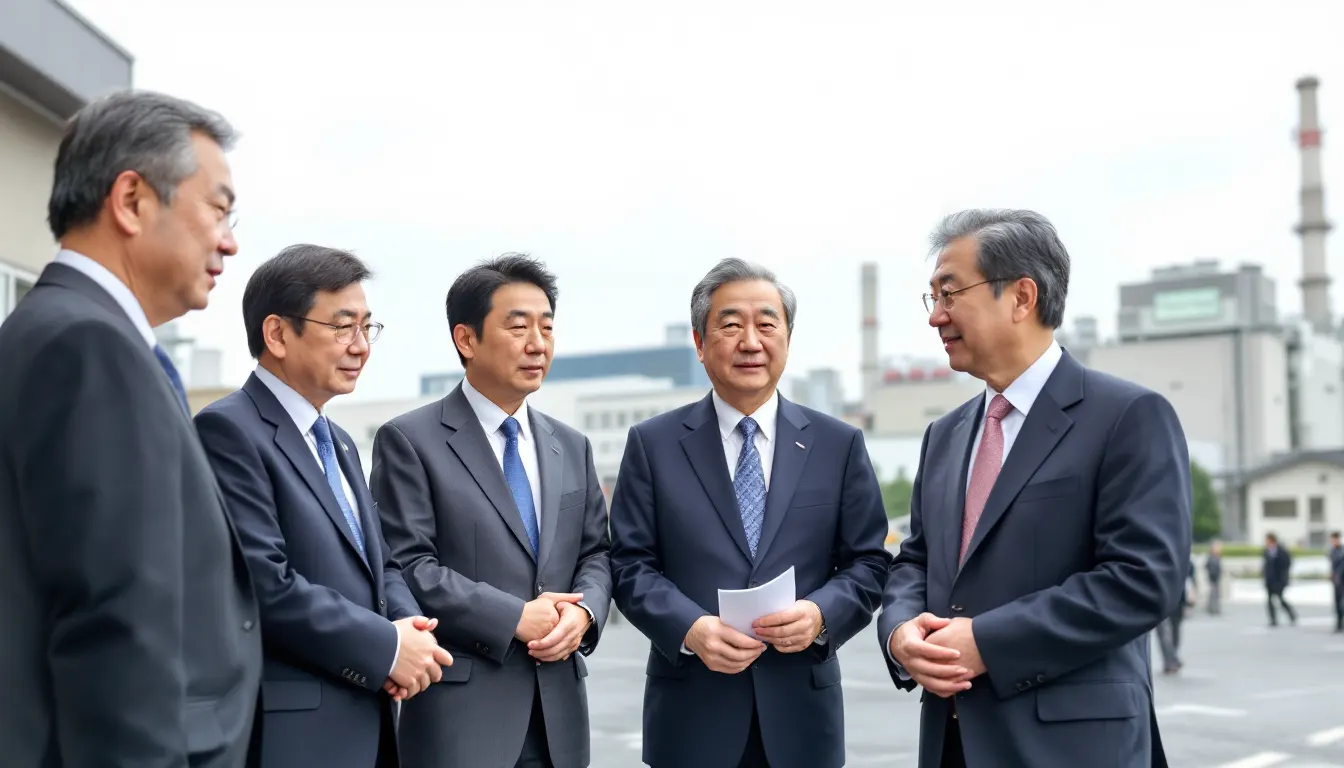Why Japan’s Kashiwazaki Kariwa Restart Hinges on Local Political Leverage

Japan’s energy landscape contrasts sharply with global pushes for rapid decarbonization. The decision over the restart of the Kashiwazaki Kariwa nuclear plant lies heavily in the hands of a local politician, highlighting unusual but critical political leverage in energy infrastructure.
The Kashiwazaki Kariwa facility, the world’s largest nuclear power plant by capacity, has been offline since the 2011 Fukushima disaster. Its restart depends on local government approval, a system unique to Japan's energy regulation framework.
This controlling power of a local politician shapes energy production for millions, illustrating the leverage of regional governance in a highly centralized system. Political approval acts as the final gatekeeper for strategic national infrastructure.
Local political constraints often trump technical readiness in large infrastructure projects.
Why Conventional Energy Analysis Misses Political Leverage
Most energy discussions frame Japan's nuclear restart as a technical or safety issue, focusing on post-Fukushima regulatory standards. But the on-the-ground reality is a political negotiation, not a purely engineering one.
Unlike energy markets in the US or Europe where federal and national agencies dominate, Japan’s system uniquely empowers local leadership. This shifts the constraint from plant capability to political consent, reframing how operators must engage.
Similar to how Trump's Education Dept shift unlocked impact through constraint repositioning rather than direct force, Japan's nuclear policy hinges on repositioning leverage within regional governance.
The Mechanism: Political Gatekeeper as a Systemic Constraint
The local politician effectively holds veto power over the plant's restart, turning their decision into a core leverage point. This governance structure introduces a non-technical bottleneck shaping system outcomes.
By contrast, other countries vastly centralize energy control. For instance, the US Nuclear Regulatory Commission dominates restart decisions, sidestepping local political friction.
Moreover, utilities like Tokyo Electric Power Company (TEPCO) operate within this framework, requiring local political buy-in for capital-intensive nuclear projects. Waiting for consensus delays outcomes and increases uncertainty.
Understanding this political constraint changes strategic approaches—instead of focusing solely on engineering fixes, operators must cultivate local political support systems, alliances, and incentives.
This dynamic echoes Cloudflare’s systemic leverage risks, where single points of failure dictate broader outcomes.
Implications for Energy Operators and Policy Makers
The key constraint shifted from technology readiness to political approval. Operators and policy makers must now account for this soft infrastructure leverage when planning restarts or new projects.
Other nations with decentralized systems should study Japan's model of regional gatekeeping as a cautionary example of how local constraints compound and delay system-wide benefits.
Strategically, energy firms can benefit by embedding political engagement into system designs, automating stakeholder management and feedback mechanisms early to accelerate decision cycles.
Governance leverage often outweighs tech capacity in shaping infrastructure success.
This episode reframes nuclear energy restart as a game of political systems and leverage, not just reactors and regulations.
Related Tools & Resources
When political and operational complexities dictate the success of large infrastructure projects, clear and standardized processes become critical. Copla’s platform for managing standard operating procedures can help energy operators and policy makers document, streamline, and communicate the intricate workflows necessary to navigate political gatekeeping and local stakeholder engagement. For organizations looking to embed structured governance and align cross-functional teams in challenging environments, Copla offers exactly the kind of operational leverage this article highlights. Learn more about Copla →
Full Transparency: Some links in this article are affiliate partnerships. If you find value in the tools we recommend and decide to try them, we may earn a commission at no extra cost to you. We only recommend tools that align with the strategic thinking we share here. Think of it as supporting independent business analysis while discovering leverage in your own operations.
Frequently Asked Questions
Why does the Kashiwazaki Kariwa nuclear plant restart depend on local political approval?
The restart depends on local government approval because Japan's unique energy regulation framework grants local politicians veto power. This political gatekeeping acts as a critical leverage point, delaying restart despite technical readiness.
How does Japan's energy governance differ from the US and Europe?
Unlike the US and Europe where federal agencies dominate nuclear restart decisions, Japan empowers local leadership, shifting constraints from technical plant capability to political consent, making local politicians key decision-makers.
What are the implications of political leverage for energy infrastructure projects?
Political leverage can delay or block infrastructure restarts or new projects, requiring operators to develop local alliances and stakeholder engagement strategies beyond just technical solutions.
How does local political constraint impact Japan's nuclear restart timeline?
Local political buy-in can cause significant delays in restarts, increasing uncertainty and postponing outcomes despite plant technical readiness, as seen with Kashiwazaki Kariwa since 2011.
What lessons can other nations learn from Japan's regional gatekeeping model?
Decentralized decision-making can compound local constraints and delay system-wide benefits, suggesting that nations should balance local input with centralized oversight to avoid bottlenecks.
How should energy firms adapt their strategies given political constraints in Japan?
Firms should embed political engagement and stakeholder management early into project plans, automating feedback mechanisms to accelerate decision cycles in politically complex environments.
Why are technical fixes alone insufficient for Japan's nuclear plants restarting?
Because political approval is the final gatekeeper, technical readiness is not enough; success depends on navigating political negotiations and local governance dynamics effectively.
What role do utilities like TEPCO play in Japan's political leverage system?
Utilities such as Tokyo Electric Power Company (TEPCO) must secure local political buy-in for capital-intensive nuclear projects, making political consensus essential to project progress.

